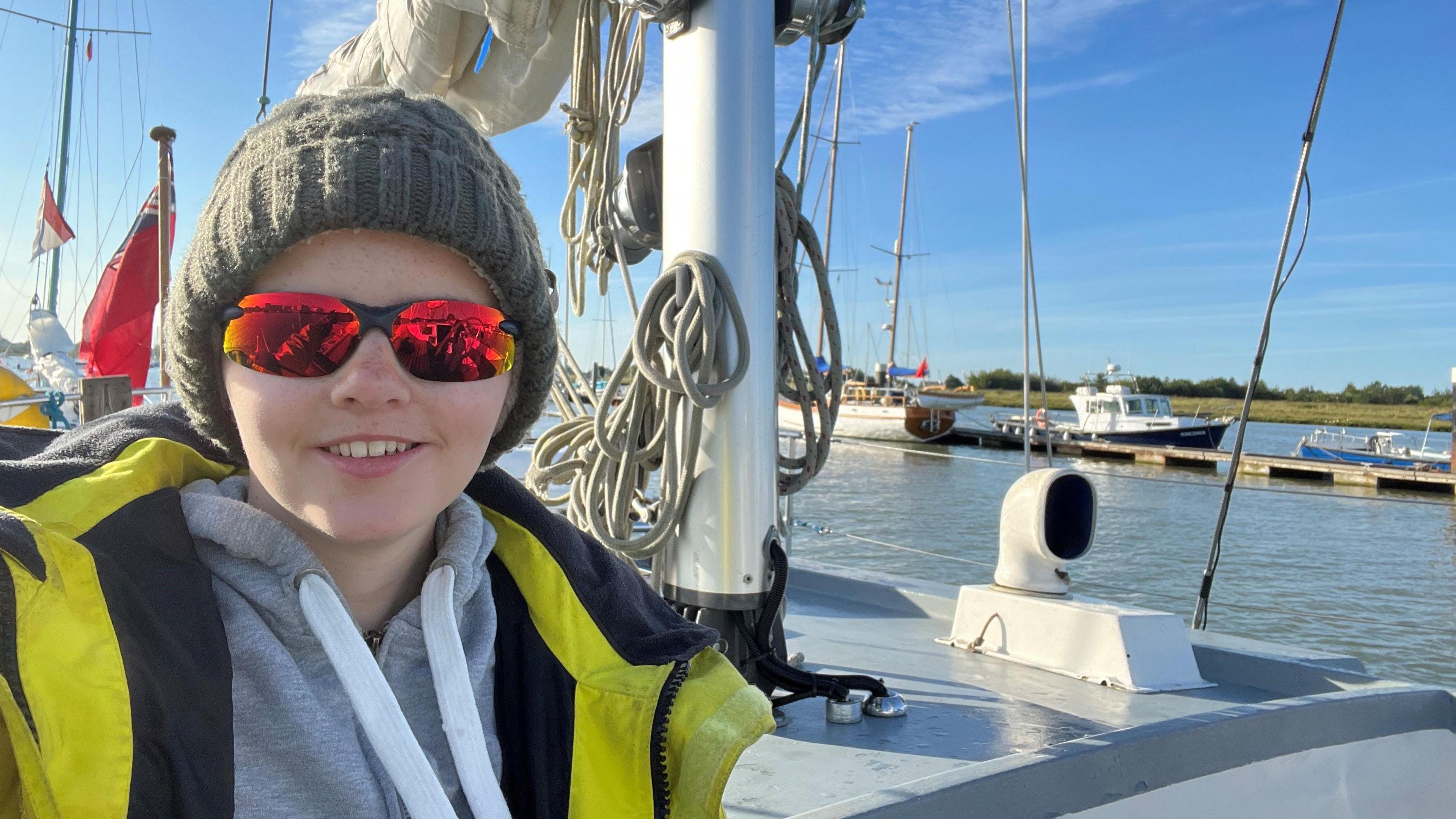Teenager first to receive ‘bladder pacemaker’

Jenny Allan has a condition which means she must self-catheterise six times a day
- Published
A 17-year-old from Kent has become the first teenager to receive a so-called “bladder pacemaker”.
Jenny Allan, of Thanet, has a rare condition which means she is unable to pass urine and has to “self-catheterise” every few hours to empty her bladder.
An electronic stimulator device – similar to a pacemaker – has been surgically implanted into the patient’s lower back.
Ms Allan said the specialist treatment, called bladder neuromodulation, has given her a “new freedom” to pursue her dream job as an ecologist.
“If I’m lucky I could end up trekking through a rainforest or counting penguins in the Antarctic,” she said.
“This operation has meant that I won’t need to self-catheterise six times a day.
"Doing so is quite difficult even on a day hike in the Kent Downs where there aren’t toilet facilities every few hours, let alone in the middle of a rainforest or up a mountain.”
'Greater independence'
The new device sends electrical impulses to change the nerve messages going to the bladder.
These changes prevent incorrect or unwanted nerve messages in the bladder, which can cause urinary incontinence or a person not being able to empty their bladder without a catheter.
Ms Allan underwent the procedure at Evelina London Children’s Hospital, which has launched the UK’s first paediatric bladder neuromodulation service.
Arash Taghizadeh, consultant paediatric urologist at the hospital, said bladder neuromodulation was a procedure that had been available to adults for more than 20 years.
“It’s great that we’re able to offer it to children and young people to improve their symptoms, giving them greater independence over their daily lives,” he said.
Follow BBC Kent on Facebook, external, on X, external, and on Instagram, external. Send your story ideas to southeasttoday@bbc.co.uk , external or WhatsApp us on 08081 002250.
Related topics
- Published19 June 2014